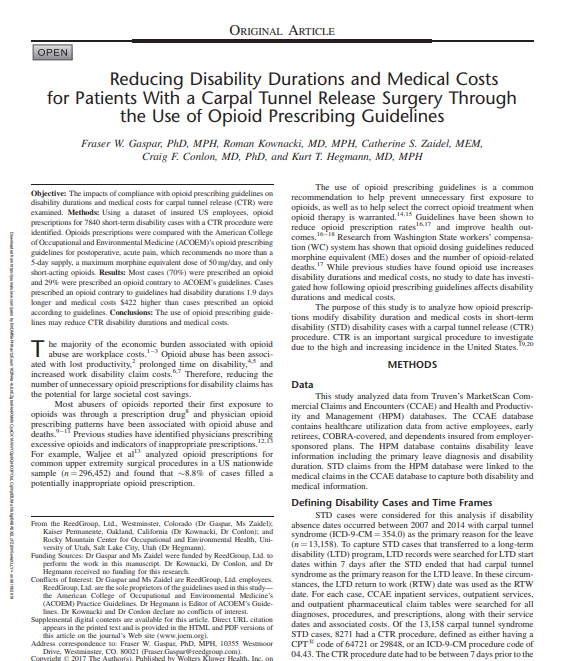Objective: The impacts of compliance with opioid prescribing guidelines on disability durations and medical costs for carpal tunnel release (CTR) were examined. Methods: Using a dataset of insured US employees, opioid prescriptions for 7840 short-term disability cases with a CTR procedure were identified. Opioids prescriptions were compared with the American College of Occupational and Environmental Medicine (ACOEM)’s opioid prescribing guidelines for postoperative, acute pain, which recommends no more than a 5-day supply, a maximum morphine equivalent dose of 50 mg/day, and only short-acting opioids. Results: Most cases (70%) were prescribed an opioid and 29% were prescribed an opioid contrary to ACOEM’s guidelines. Cases prescribed an opioid contrary to guidelines had disability durations 1.9 days longer and medical costs $422 higher than cases prescribed an opioid according to guidelines. Conclusions: The use of opioid prescribing guidelines may reduce CTR disability durations and medical costs.

